Do Cats Lose Baby Teeth? (When? Why? How?)
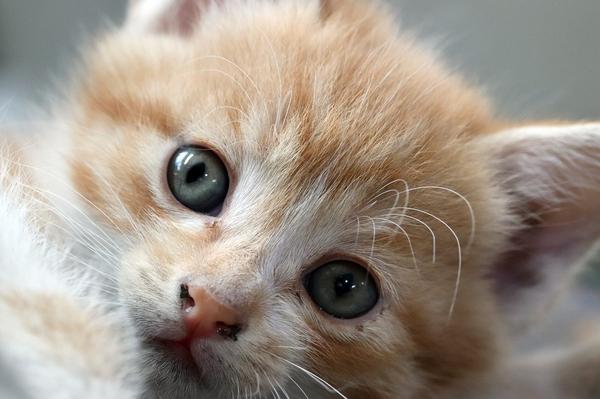
Ever wondered if your feline friend loses their baby teeth just like humans do?
You're not alone, my friend.
Curiosity claws at us all, urging us to unravel the mysteries of our fur babies' dental development. 😺
Well, buckle up, because we're about to embark on a toothy adventure together.
Let's sink our teeth into it, shall we?
When Do Cats Lose Baby Teeth?
When it comes to kittens losing their baby teeth, the timing can vary for each one.
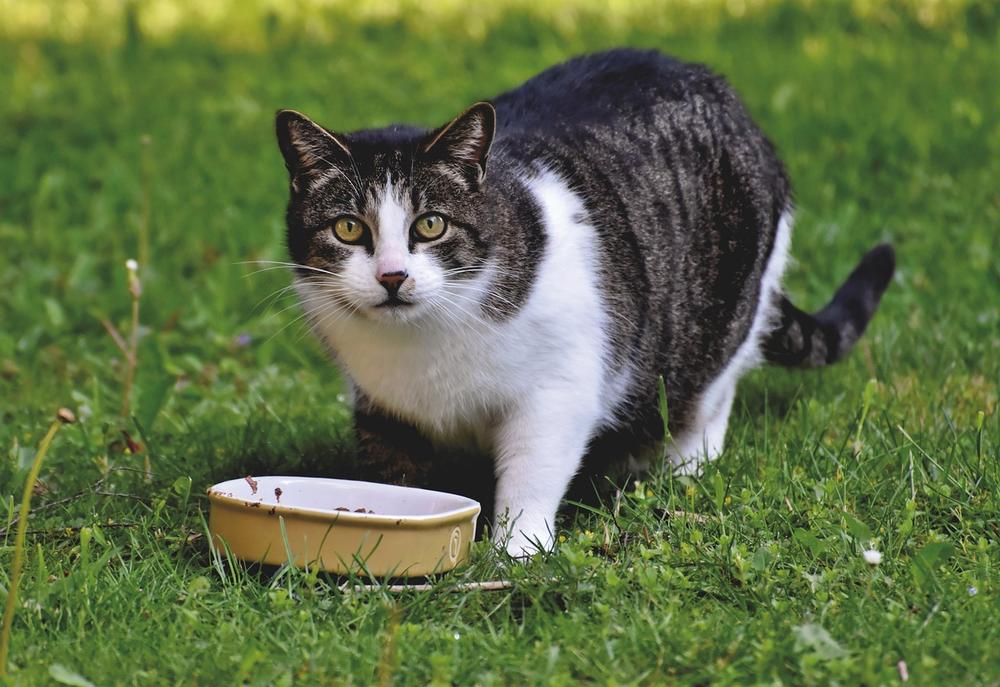
Here's what you need to bear in mind:
- Kittens can start losing their baby teeth as early as three months or as late as seven months.
- Typically, the shedding of baby teeth begins around three months, and adult teeth come in by six months.
- The teething process lasts from about 10 weeks to six months.
- Cat teeth development starts at around three to four weeks, and by six to eight weeks, all the baby teeth are fully present.
- Usually, adult tooth development is complete by six months, but for some cats, it might take up to nine months.
- Cats have a total of 30 permanent teeth, including molars that appear between 20-24 weeks.
- The roots of the baby teeth get absorbed due to the pressure from the new teeth coming in.
- It's normal for kittens to swallow their baby teeth during meals.
- To get more precise information, consult with a veterinarian during routine dental check-ups.
- Unfortunately, there isn't a standard chart specifying when each tooth will come in.
- Keep an eye out for any signs of difficulty in eating or discomfort in their mouth.
- Regular dental care is crucial for your cat's overall health.
With these tips, you'll have a good understanding of your kitten's tooth journey!
And now, let's dive deeper into the teething process itself and explore how you can help your kitten navigate this discomfort...
Does Teething Cause Discomfort?
Teething can be uncomfortable for kittens, causing them to seek relief by chewing on objects. Look out for signs like increased chewing, slobbering, and bleeding gums. If excessive bleeding, difficulty eating, or strange behavior occurs, a vet visit is necessary. Embrace teething as part of a kitten's growth.
Teething, my pals, is a coming-of-age ritual.
And let me tell ya, it can cause some discomfort for them adorable little kittens out there.
Now, listen up.
You gotta hook those cute furballs up with something to chew on. Specialized chew toys made for teething are crucial 'cause gnawing helps ease the pain caused by them new pearly whites pushing through.
During this time, your kitten might start turning to other objects to sink their teeth into.
Ain't no surprise if they go after your kicks or your favorite pair of headphones. It's just their way of findin' some relief.
Here's what else you should be watchin' out for... Your kitten may show signs of teething like growin' chewing activity, slobbering, and even a bit of bleeding in them gums.
They might paw at their mouth, lose interest in grub, or become finicky about eating.

Hold up, though:
Is there ever a point when teething becomes too much?
Absolutely!
If you spot excessive bleeding from them gums, trouble eatin', or odd changes in behavior, it's time for a trip to the vet. During this teething adventure, expect sore and swollen gums.
And speaking of adventures, them baby cats might also have some funky breath. Don't say I didn't warn y'all.
So embrace the discomfort, folks...
Teething goes hand in hand with bein' a growing kitten.
And by the way, if you're wondering how to provide additional relief and prevent unwanted chewing behavior during this teething phase, I've got some great tips for you.
Keep reading to discover effective strategies that will keep your kitten happy and their little teeth in tip-top shape...
How to Help Your Teething Kitten
When it comes to helping your teething kitten, here are some practical tips for you:
- Give your kitten a variety of chew toys made specifically for teething. This way, they can explore different textures and shapes, which will soothe their gums.
- Make sure your home is safe for your kitten by getting rid of small objects that they could chew on and potentially hurt themselves with, like electrical cords or tiny toys. This way, accidents are prevented and your kitten's teeth stay intact.
- Use positive reinforcement when your kitten chews on the right toys by rewarding them with treats or praise. This will help redirect their chewing behavior to the appropriate items.
- Keep an eye on your kitten's oral health regularly by checking for excessive bleeding or signs of discomfort. If you notice anything unusual, don't hesitate to consult a vet.
- Establish a routine for dental care by brushing your kitten's teeth daily using toothpaste specifically designed for cats. This ensures good oral hygiene and minimizes future dental problems.
- Pay attention to any changes in appetite or weight loss, as these might indicate mouth tenderness. If you observe a significant decline, seek veterinary assistance immediately.
- Provide a balanced diet that supports healthy teeth and gums. Avoid giving your kitten anything that could harm their teeth, like hard bones or extra crunchy treats.
Ensure your kitten in the teething phase receives appropriate care and relief by heeding these suggestions.
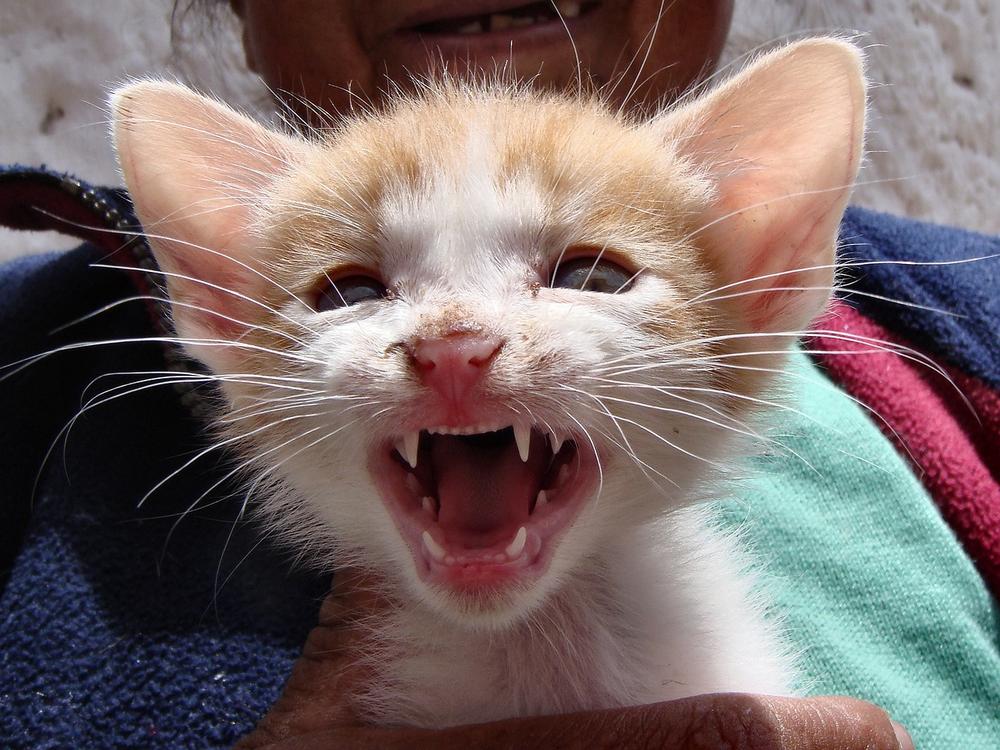
And finally, if you want to delve deeper into the signs of a teething kitten and discover effective solutions, there's one resource I highly recommend checking out - my useful blog post on Cat Teething.
In it, I share valuable insights and tips on how to identify the common signs of teething in kittens and what actions you can take to provide them with the necessary comfort and care.
Trust me, this article will be a game-changer for you and your teething furball.
Persistent Tooth: What to Do if Your Cat’s Teeth Won’t Fall Out
If your cat's got a baby tooth that won't budge, it's time to do something about it. 😺
Here's what you need to do:
- Get an appointment with the vet: You gotta talk to a vet in this situation. They can check out the tooth and give it the right treatment.
- Keep an eye on their teeth: Until your kitten hits around seven or eight months old, make sure you regularly look at their mouth to see if their teeth are growing well.
- Remove the tooth promptly: If that baby tooth needs to be taken out, don't wait around. The sooner you get rid of it, the better chance you have of avoiding future problems. It might even require anesthesia and X-rays.
- Consider orthodontic care if needed: If you delay taking out the tooth, there could be other dental issues later on. In that case, specialized orthodontic treatments might be necessary to fix bite problems or anything related.
Keeping your cat's teeth healthy is super important for their overall wellbeing.
To wrap it up, don't ignore those stubborn teeth in your cat's mouth.
Talk to a vet and take the steps needed for good dental health.
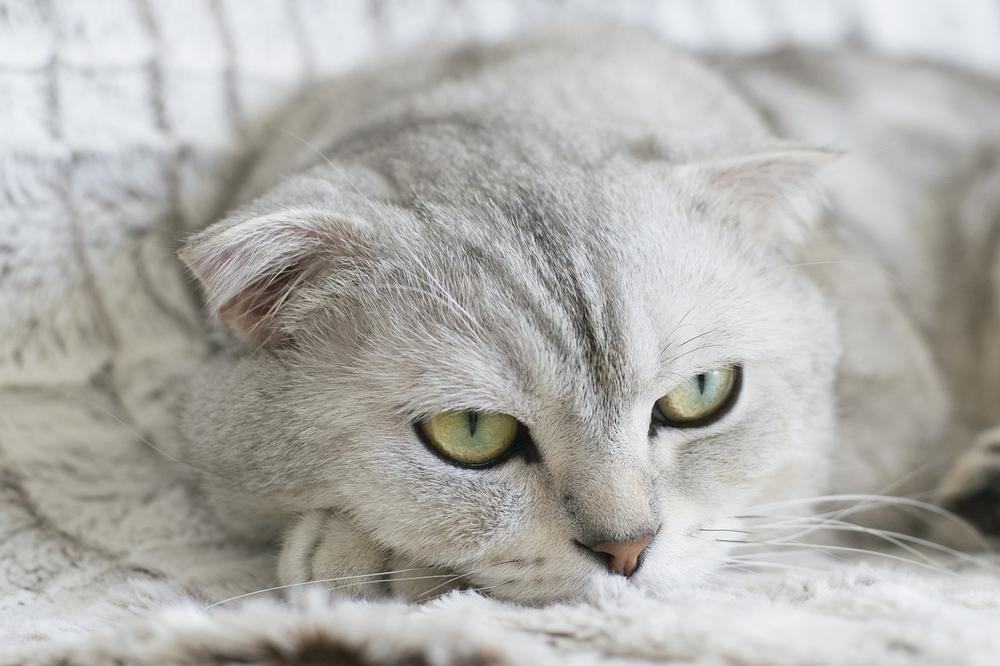
To ensure the ongoing health of your cat's teeth, take proactive steps.
Remember to regularly examine their mouth for proper tooth growth, especially until they reach around seven or eight months old.
If you encounter a stubborn baby tooth that needs removal, don't hesitate to seek veterinary assistance promptly.
My guide on Why Do Cats Lose Their Teeth delves deeper into the process of tooth loss in cats and provides helpful guidance on caring for them during this time.
I highly recommend checking it out!
Persistent Deciduous Teeth
Persistent Deciduous Teeth can cause double sets of teeth
You know what?
When those baby teeth refuse to budge and the permanent teeth come in, it's like having two sets of teeth.
It's a real dental headache, trust me!
Keep an eye on your kitten's mouth
Here's the deal:
You need to keep a close watch on your adorable furball's mouth.
These pesky baby teeth can create all sorts of trouble.
They can make the adult teeth uncomfortable and push them out of place.
And nobody wants a crowded mouth, right?
Sometimes, these stubborn baby teeth just don't get the message to go away.
This makes it difficult for the adult teeth to break through.
It's like trying to navigate through rush hour traffic!
The result?
Crooked teeth, weird bites, yucky tartar buildup, tooth decay, gum issues, or even infections and injuries.
Proper dental care is key
Here's an important tip, my friend:
Taking good care of your kitten's teeth can save the day...
Brushing their teeth regularly should be part of their overall health routine.
It not only prevents dental problems but also keeps their pearly whites looking fabulous.
So next time you grab that toothbrush (yes, kitties have toothbrushes too), remember that their oral health depends on you.
Treat those teeth right, pal!
Recognizing and Managing Kitten Teething: A Guide
Kittens show teething signs like bleeding gums and decreased appetite.
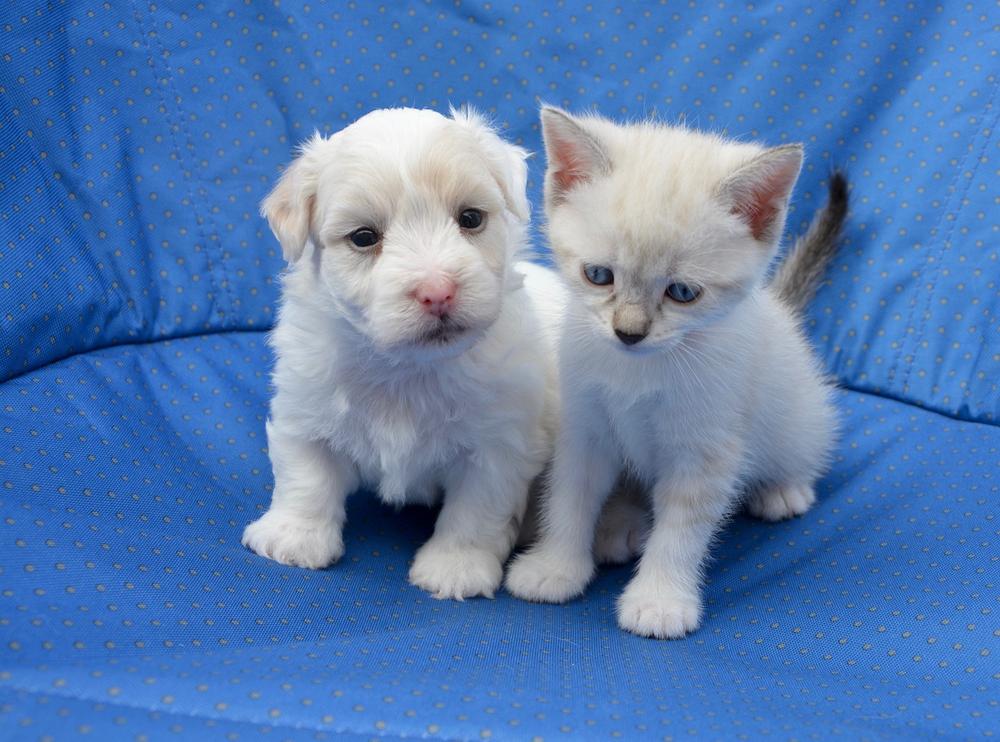
You can make mealtime more comfortable by offering softer or moistened food.
The irritation caused by baby teeth during nursing encourages weaning and helps determine age. These baby teeth, the incisors, canines, and premolars, play a crucial role in their development without external sources.
Kitten Teething: A Final Word on Cat Dental Health
- Kittens start losing their baby teeth around 3 months of age.
- Teething occurs between 10 weeks to 6 months of age.
- Kittens usually swallow their baby teeth if they are not found.
- Adult tooth development in cats usually completes by 6 months.
- Cats have 30 permanent teeth, including molars that show up around 20-24 weeks.
- Teething can cause excessive chewing, sore gums, and drooling.
- Provide appropriate toys and kitten-proof your home during teething.
- Regular dental care and hygiene are crucial for good oral health.
- Retained baby teeth can cause issues such as decay and should be removed.
- Persistent deciduous teeth can result in crowded mouths and dental issues.
- Signs of kitten teething include chewing, bleeding gums, and decreased appetite.
And that wraps up today's article.
You made it to the end of my blog post! I'm really excited to hear your thoughts. I poured a ton of energy into creating informative and helpful blog posts, which definitely take up a significant amount of my time (but in a good way!). It would mean so much to me if you could click on one of the social sharing icons and spread the word about this post. Thank you so much for your support!
Talk soon,
-Sarah Davis